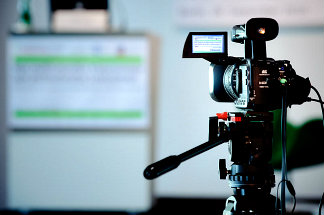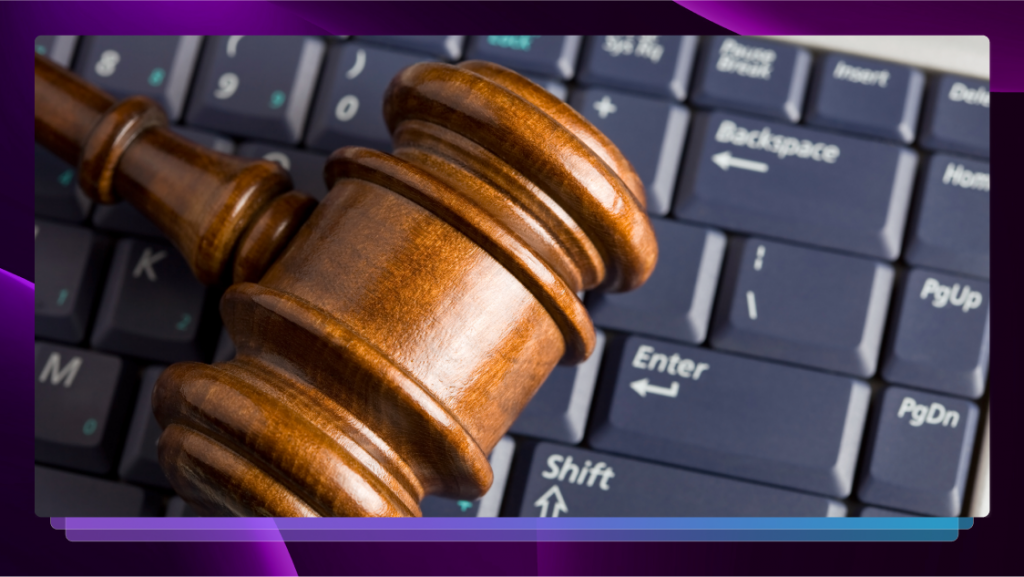The Significance of Lawful Video Depositions in Modern Legal Solutions: What You Ought to Know
Legal video clip depositions have actually ended up being necessary in today's legal landscape. They offer a multidimensional view of witness testaments that standard transcripts simply can not match. By recording both non-verbal and verbal interaction, these depositions boost the general understanding of a witness's reputation. The effectiveness of video clip depositions pivots on various variables, consisting of compliance with legal standards and finest practices. Discovering these aspects discloses their true value in contemporary lawful services
What Are Legal Video Depositions?
Legal video depositions act as a vital device in the lawsuits process. They involve tape-recording witness statements in a video clip layout, recording both spoken and non-verbal communication. This method allows attorneys to document the behavior, expressions, and reactions of witnesses, offering a richer context for the statement. Usually carried out in a regulated atmosphere, these depositions are led by attorneys who ask concerns while a stenotype reporter records the dialogue. The resulting video clip can be crucial for trial prep work, as it makes it possible for legal representatives to analyze the credibility of witnesses and refine their approaches. In addition, lawful video depositions can be utilized in various lawful contexts, ranging from civil conflicts to criminal situations. The acoustic and visual elements of video clip depositions improve the presentation of evidence, making it an important component in the modern-day legal landscape. Overall, they add substantially to the effectiveness and effectiveness of legal proceedings.

Benefits of Video Depositions Over Conventional Methods
Video clip depositions offer many benefits compared to standard approaches of taking witness testimonies. One considerable advantage is the ability to catch both audio and aesthetic elements, offering an extra thorough record of the witness's declarations. This twin layout enhances clarity and enables lawyers to reference specific nuances during trial preparation. Furthermore, video clip depositions assist in remote engagement, making it easier for witnesses who may be unavailable for in-person appearances because of geographical restrictions or health and wellness issues.Moreover, video clip depositions can accelerate the total deposition procedure, lowering the moment and expenses connected with traveling and logistics. They likewise improve availability, as taped depositions can be quickly shared among legal teams and referenced any time. This convenience adds to far better case monitoring and prep work. Generally, video clip depositions represent a modern, reliable strategy to collecting witness statements, lining up with the developing needs of the lawful occupation.
The Role of Body Movement and Tone in Testimonies

In legal video clip depositions, body language and tone play vital functions in conveying a witness's credibility and reliability. Nonverbal cues can give insights right into a witness's emotional state, affecting exactly how their testament is viewed. Recognizing the effect of these components is vital for lawyers and jurors alike when reviewing the reliability of a testament.
Nonverbal Communication Insights
While verbal interaction is frequently highlighted in lawful statements, nonverbal signs such as body language and tone play a necessary function in sharing trustworthiness and feeling. Viewers of depositions might note that a witness's stance, motions, and facial expressions can considerably affect perceptions of reliability. For circumstances, regular eye contact may signal confidence, while preventing stare can suggest dishonesty or pain. The tone of voice-- its pitch, volume, and pace-- can pass on feelings of sincerity or unpredictability. Lawful specialists have to be in harmony with these nonverbal signals, as they often provide critical context that enhances talked words. Recognizing these nuances can improve the effectiveness of depositions and affect the end result of legal proceedings.
Psychological Tone Influence
The emotional tone conveyed throughout lawful statements significantly impacts just how a witness is viewed. Body language, singing inflections, and faces play vital duties fit the narrative of a testament. A witness displaying confidence via stable eye contact and a tranquil tone can instill a feeling of dependability and engagement. Alternatively, indications of anxiety, such as fidgeting or an unstable voice, may bring about uncertainty regarding their account. The nuances of emotional expression can affect the analysis of truths, making it essential for attorneys to acknowledge their explanation these cues. In video depositions, the aesthetic and auditory elements incorporate, emphasizing the relevance of emotional tone in communicating genuineness and truthfulness within the legal procedure.
Trustworthiness and Trustworthiness
An important element in developing reliability and dependability throughout testimonies lies in the witness's body movement and intonation. Observers frequently rely upon non-verbal signs-- such as eye contact, position, and motions-- to analyze a witness's sincerity. As an example, a witness who preserves eye call and presents open body movement might be viewed as even more truthful and trustworthy than one that stays clear of eye call or shows up shut off. Additionally, tone of voice plays an important role; a stable, calm tone can reinforce the credibility of the testament, while variations in pitch or quantity may raise doubts. Inevitably, the mix of body movement and vocal tone greatly affects exactly how a witness's statements are received and analyzed in a lawful context.
Best Practices for Conducting Video Clip Depositions
Carrying out video depositions calls for mindful planning and implementation to assure a effective and clear discussion of statement. First, it is very important to select a quiet, well-lit area to reduce interruptions and safe and secure ideal video top quality. The devices needs to be evaluated in advancement, consisting of video cameras, microphones, and lights, to avoid technological issues during the deposition.Next, events involved need to review the style and treatments beforehand, ensuring that everyone comprehends their duties. The deponent ought to be oriented on the process, including just how to respond clearly and concisely.Additionally, keeping a professional attitude throughout the session is important. This consists of avoiding speaking over one another and verifying that all inquiries are directed properly. It is vital to tape the deposition in a layout that permits for very easy playback and testimonial, maintaining the integrity of the testimony for future use.
Lawful Factors To Consider and Compliance Issues
How do lawful factors to consider and conformity concerns influence the performance of video clip depositions? Lawful specialists must navigate an intricate landscape of laws, guaranteeing that video depositions abide by administrative policies and requirements. Compliance with laws concerning personal privacy, authorization, and recording approaches is crucial. Obtaining specific approval from all celebrations involved is essential to prevent legal repercussions.Additionally, the admissibility of video clip evidence in court can pivot on compliance with step-by-step demands. Ensuring that the tools utilized meets technological criteria is also crucial, as poor top quality can weaken the deposition's reliability.Moreover, lawyers need to recognize any type of specific state regulations that govern video clip depositions, as these can vary considerably. Failure to attend to these considerations can not only threaten the stability of the deposition yet also affect the overall situation approach, eventually influencing the client's legal results.
How Video Depositions Effect Court Perception
While video depositions can function as powerful tools in legal process, their impact on jury understanding is substantial. The auditory and aesthetic components of video clip recordings offer jurors with a much more comprehensive understanding of witness temperament, reputation, and emotional responses. This multimedia method can improve the jurors' capacity to analyze the reliability of statement compared to standard text-based transcripts.Moreover, video clip depositions permit jurors to observe body movement, intonation, and face expressions, all of which can impact their interpretation of the witness's statements. The existence of a witness on display can humanize them, fostering empathy and link, which might guide jurors' point of views. Conversely, a witness that shows up untrustworthy or incredibly elusive on video clip might bring about adverse assumptions that affect a jury's decision. Ultimately, the vibrant nature of video depositions plays an important role fit how jurors analyze proof and reach their decisions.
The Future of Video Depositions in Legal Practice
As advancements in modern technology proceed to reshape the legal landscape, the future of video depositions is poised for considerable evolution. Advancements such as fabricated intelligence, digital fact, and improved video clip conferencing devices are expected to streamline the deposition process and boost availability. Attorneys may use AI-driven analytics to evaluate witness reputation and situation toughness a lot more effectively.Moreover, the combination of digital truth could permit juries to experience immersive simulations of depositions, giving deeper context and understanding. In addition, the pattern toward remote depositions is likely to linger, using greater read what he said versatility for attorneys and clients alike.As remote job becomes significantly normalized, video clip depositions will likely come to be common practice, lowering costs and time constraints connected with traditional techniques. On the whole, these technological improvements assure to enhance the effectiveness, performance, and ease of access of video clip depositions in lawful practice, eventually changing just how lawyers get ready for test.
Regularly Asked Questions
Just How Much Do Legal Video Clip Depositions Commonly Cost?

Can Video Clip Depositions Be Utilized in Any Sort Of Instance?
Video depositions can be utilized in numerous kinds of cases, including civil, criminal, and family members legislation. Their flexibility allows lawyers to present witness testaments properly, adjusting to the particular demands of different lawful circumstances.
What Equipment Is Required for a Video Deposition?
To perform a video clip deposition, important tools includes a top quality camera, microphone, illumination, and a trustworthy recording device. In addition, a computer system with editing software application might be essential for post-production and formatting the last video clip.
For how long Does a Typical Video Deposition Last?
A regular video deposition lasts in between 2 to four hours, relying on the complexity of the instance and the number of questions postured. Extended sessions may take place, try this web-site but breaks are typically included for participant comfort.

Are Video Clip Depositions Admissible in Court?
Video clip depositions are usually permissible in court, given they comply with lawful requirements and policies of evidence. Their use enhances quality and maintains witness testament, helping in the judicial process during hearings and tests. Legal video depositions have actually come to be crucial in today's lawful landscape. Furthermore, lawful video depositions can be utilized in numerous lawful contexts, ranging from civil disputes to criminal instances. Furthermore, video depositions facilitate remote engagement, making it much easier for witnesses who might be not available for in-person appearances due to geographical restraints or health and wellness issues.Moreover, video depositions can quicken the general deposition process, lowering the time and expenses associated with traveling and logistics. Guaranteeing that the tools utilized meets technological standards is likewise essential, as inadequate quality can threaten the deposition's reliability.Moreover, attorneys must be conscious of any kind of certain state laws that regulate video clip depositions, as these can vary substantially. Furthermore, the fad toward remote depositions is likely to linger, providing better flexibility for attorneys and customers alike.As remote job becomes progressively stabilized, video depositions will likely end up being typical practice, minimizing costs and time constraints connected with typical methods.